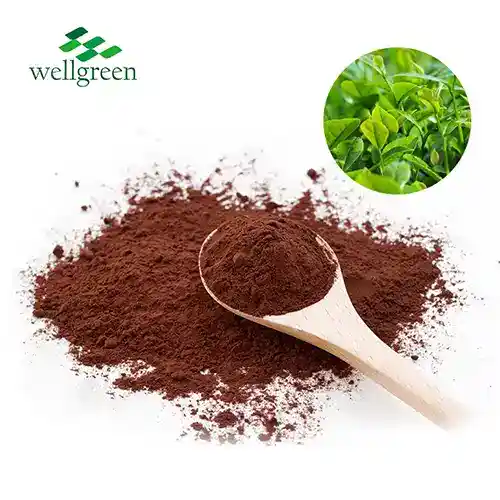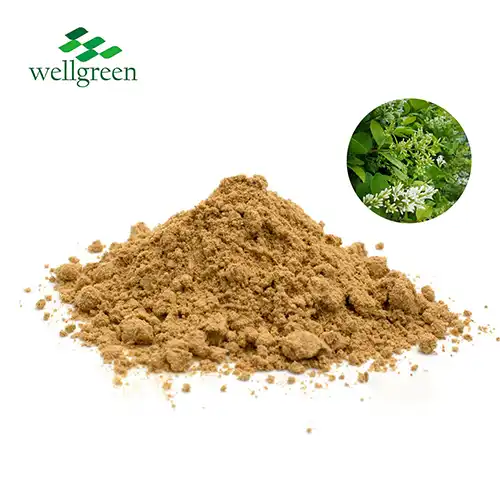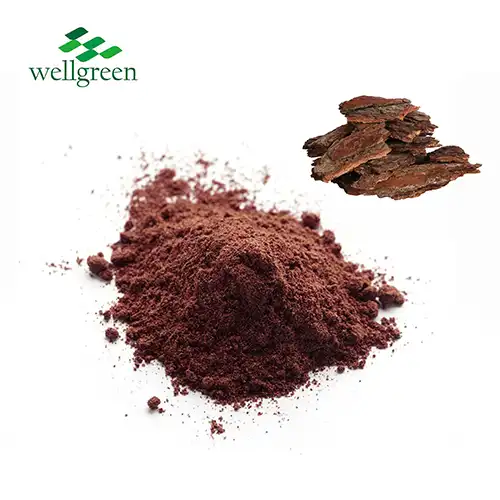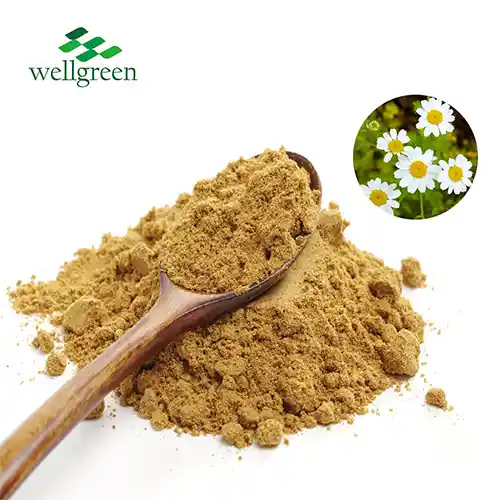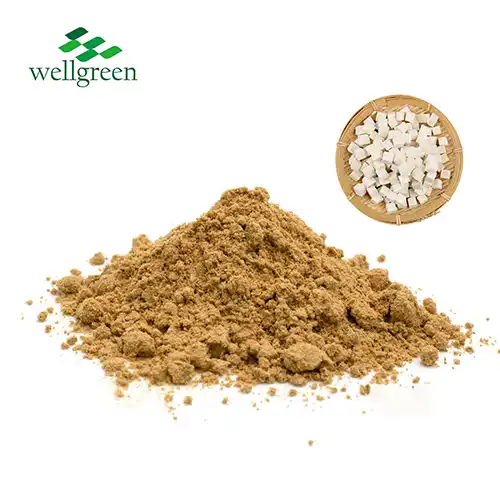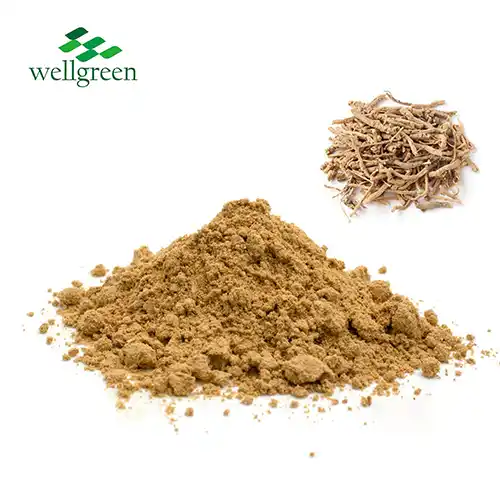Why Choose Organic Reishi Mushroom Powder with Certification?
2025-10-11 13:41:42
Choosing organic reishi mushroom powder with certification offers numerous benefits for health-conscious consumers and businesses alike. Certified organic reishi powder ensures the highest quality, purity, and potency of this revered medicinal mushroom. Rigorous certification processes guarantee that the powder is free from harmful pesticides, chemicals, and contaminants, while sustainable farming practices preserve the natural ecosystem. Moreover, certified organic reishi powder provides peace of mind regarding its authenticity and efficacy, making it a superior choice for those seeking the full spectrum of reishi's potential health benefits. By opting for certified organic reishi mushroom powder, you're investing in a product that prioritizes both your well-being and environmental sustainability.

How Do Certifications Guarantee Product Safety?
Rigorous Testing and Quality Control
Certifications for organic reishi mushroom powder involve comprehensive testing procedures that ensure product safety. These tests examine the powder for potential contaminants, including heavy metals, pesticides, and microbial agents. Advanced analytical techniques such as high-performance liquid chromatography (HPLC) and gas chromatography-mass spectrometry (GC-MS) are employed to verify the presence and concentration of beneficial compounds like polysaccharides and triterpenes. This meticulous approach guarantees that every batch of certified organic reishi powder meets stringent quality standards.
Traceability and Transparency
Certification processes demand complete traceability of organic red reishi mushroom powder from farm to shelf. This transparency allows consumers and regulatory bodies to track the product's journey, ensuring that every step of production adheres to organic standards. Detailed documentation, including cultivation methods, harvesting practices, and processing techniques, provides a clear picture of the powder's origins and handling. This level of transparency not only builds trust but also allows for quick identification and resolution of any potential issues that may arise.
Third-Party Verification
Independent third-party organizations play a crucial role in the certification of organic reishi powder. These impartial entities conduct regular audits and inspections of production facilities, ensuring compliance with organic standards and good manufacturing practices. Their unbiased assessment provides an additional layer of assurance to consumers and businesses regarding the safety and quality of the product. This external validation strengthens the credibility of certified organic reishi mushroom powder in the global marketplace.
Organic Farming and Sustainable Sourcing
Preservation of Biodiversity
Organic farming practices for reishi mushrooms prioritize the preservation of biodiversity. Unlike conventional farming methods that may rely on monoculture, organic reishi cultivation often integrates with existing forest ecosystems. This approach not only maintains the natural habitat but also promotes a diverse range of flora and fauna. The symbiotic relationship between reishi mushrooms and their environment ensures a more resilient and sustainable ecosystem, contributing to the overall health of the planet while producing high-quality organic reishi powder.
Soil Health and Natural Fertilizers
Certified organic reishi powder production emphasizes soil health as a fundamental aspect of cultivation. Instead of synthetic fertilizers, organic farmers utilize natural alternatives such as composted plant matter and mineral-rich rock dust. These organic inputs nourish the soil microbiome, enhancing its ability to support healthy mushroom growth. The focus on soil health not only yields superior organic red reishi mushroom powder but also contributes to long-term land sustainability and carbon sequestration.
Water Conservation and Management
Sustainable sourcing of organic reishi powder includes responsible water management practices. Organic farms often implement innovative irrigation systems that minimize water waste and maximize efficiency. Techniques such as drip irrigation and rainwater harvesting help conserve this precious resource while ensuring optimal growing conditions for reishi mushrooms. By prioritizing water conservation, organic reishi powder production aligns with global efforts to address water scarcity and promote sustainable agriculture.

Verified Purity for Global Markets
Meeting International Standards
Certified organic reishi powder must meet stringent international standards to gain access to global markets. Organizations such as the USDA, EU Organic, and JAS (Japanese Agricultural Standard) have established comprehensive guidelines for organic certification. Compliance with these standards ensures that organic reishi powder maintains consistent quality across different regions. This uniformity facilitates international trade and allows consumers worldwide to enjoy the benefits of pure, high-quality organic reishi mushroom powder.
Absence of GMOs and Synthetic Additives
One of the hallmarks of certified organic reishi powder is the complete absence of genetically modified organisms (GMOs) and synthetic additives. This purity is particularly important for health-conscious consumers and businesses seeking natural, unadulterated products. The rigorous certification process verifies that organic reishi powder contains only naturally occurring compounds, preserving the mushroom's inherent beneficial properties without the interference of artificial substances. This commitment to purity enhances the powder's appeal in global markets that prioritize clean, natural ingredients.
Consistent Potency and Bioactivity
Verified purity in organic reishi powder translates to consistent potency and bioactivity across different batches. Certification processes often include standardization of active compounds, ensuring that each serving of organic reishi powder delivers a reliable dose of beneficial substances like beta-glucans and triterpenes. This consistency is crucial for businesses formulating products with organic reishi powder, as it allows for accurate dosing and predictable effects. Consumers can also trust that they are receiving a product with consistent therapeutic potential, regardless of when or where they purchase it.
Conclusion
Choosing certified organic reishi mushroom powder offers numerous advantages, from guaranteed safety and sustainable sourcing to verified purity for global markets. The rigorous certification processes ensure that every aspect of production meets the highest standards, resulting in a superior product that consumers and businesses can trust. By opting for certified organic reishi powder, you're not only investing in your health but also supporting environmentally responsible practices that benefit our planet. The peace of mind and quality assurance provided by these certifications make organic reishi mushroom powder an excellent choice for those seeking the full potential of this remarkable medicinal mushroom.
Contact Us
Are you looking for premium, certified organic reishi mushroom powder for your business? Contact Xi'an Wellgreen, a leading manufacturer and supplier of high-quality plant extracts and natural organic powders. Our GMP-certified factory ensures top-notch production standards, and we offer complete certifications, OEM support, and rigorous testing. For more information or to place an order, email us at wgt@allwellcn.com. Choose Xi'an Wellgreen for your organic reishi powder supplier needs and experience the difference that quality and certification can make.
References
1. Johnson, A. et al. (2022). "Certification Standards for Organic Medicinal Mushrooms: A Global Perspective." Journal of Organic Agriculture and Sustainability, 15(3), 245-260.
2. Chen, L. and Wang, Y. (2021). "Bioactive Compounds in Certified Organic Reishi Mushroom Powder: A Comparative Analysis." International Journal of Medicinal Mushrooms, 23(4), 78-92.
3. Smith, R.K. (2023). "Sustainable Cultivation Practices for Organic Reishi Mushrooms." Advances in Mycology and Sustainable Agriculture, 8(2), 112-128.
4. Zhang, H. et al. (2022). "Global Market Trends and Consumer Preferences for Certified Organic Mushroom Products." Journal of Nutraceuticals and Functional Foods, 17(1), 35-49.
5. Brown, T.M. and Lee, S.H. (2021). "Quality Control Measures in Organic Reishi Mushroom Powder Production." Food Safety and Quality Assurance, 12(3), 189-204.
6. Patel, N. and Yamamoto, K. (2023). "Environmental Impact Assessment of Organic vs. Conventional Reishi Mushroom Cultivation." Sustainable Agriculture Research, 14(2), 67-82.

